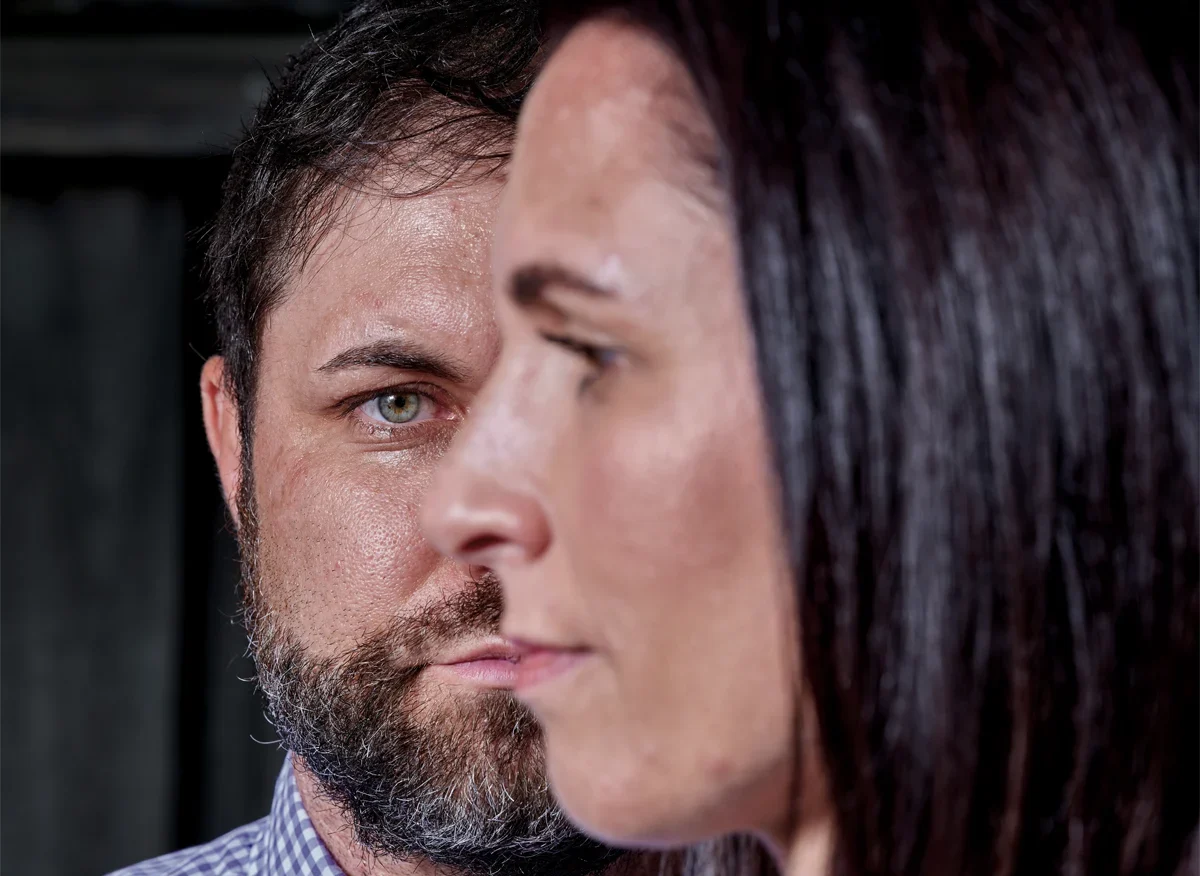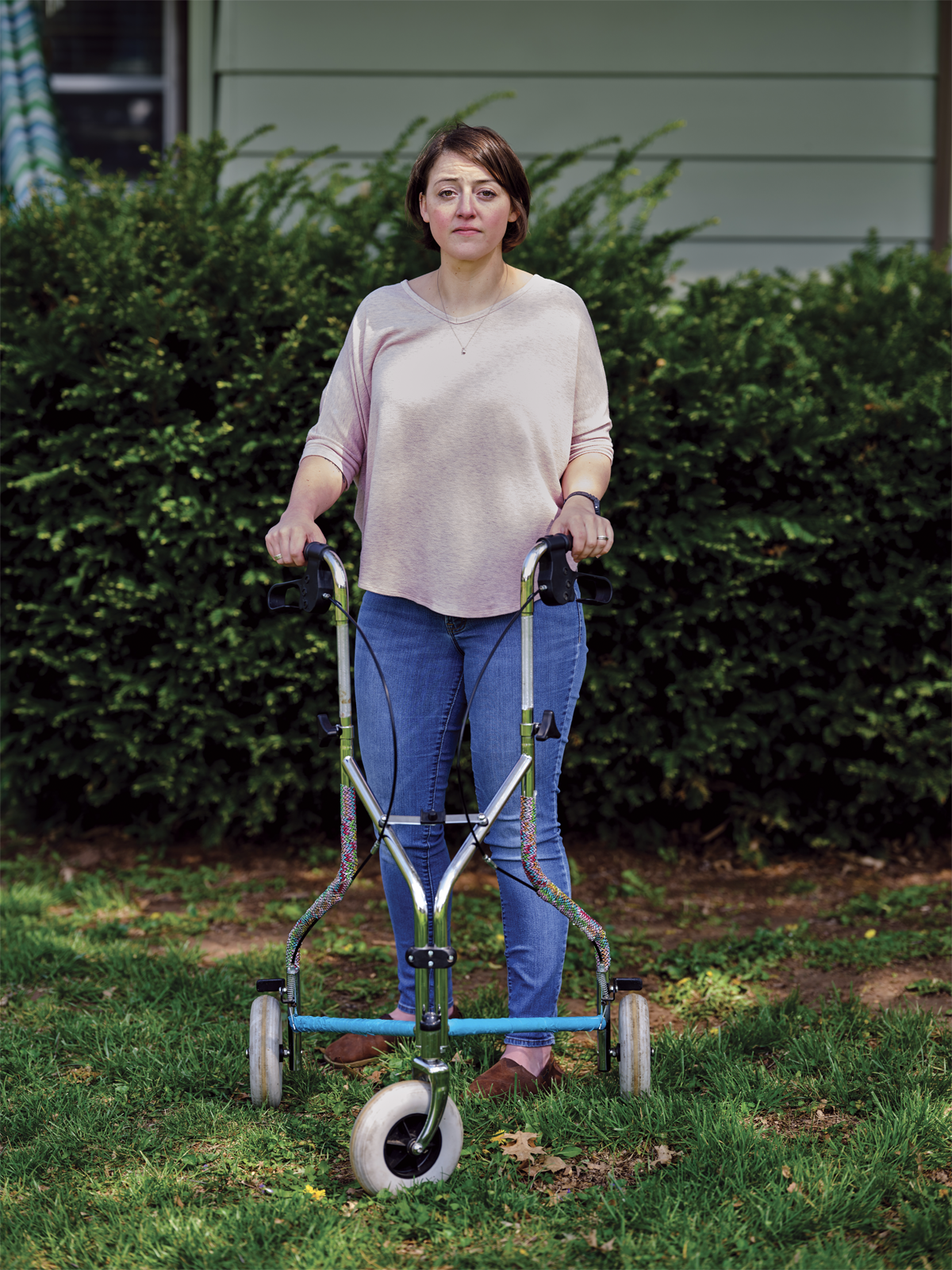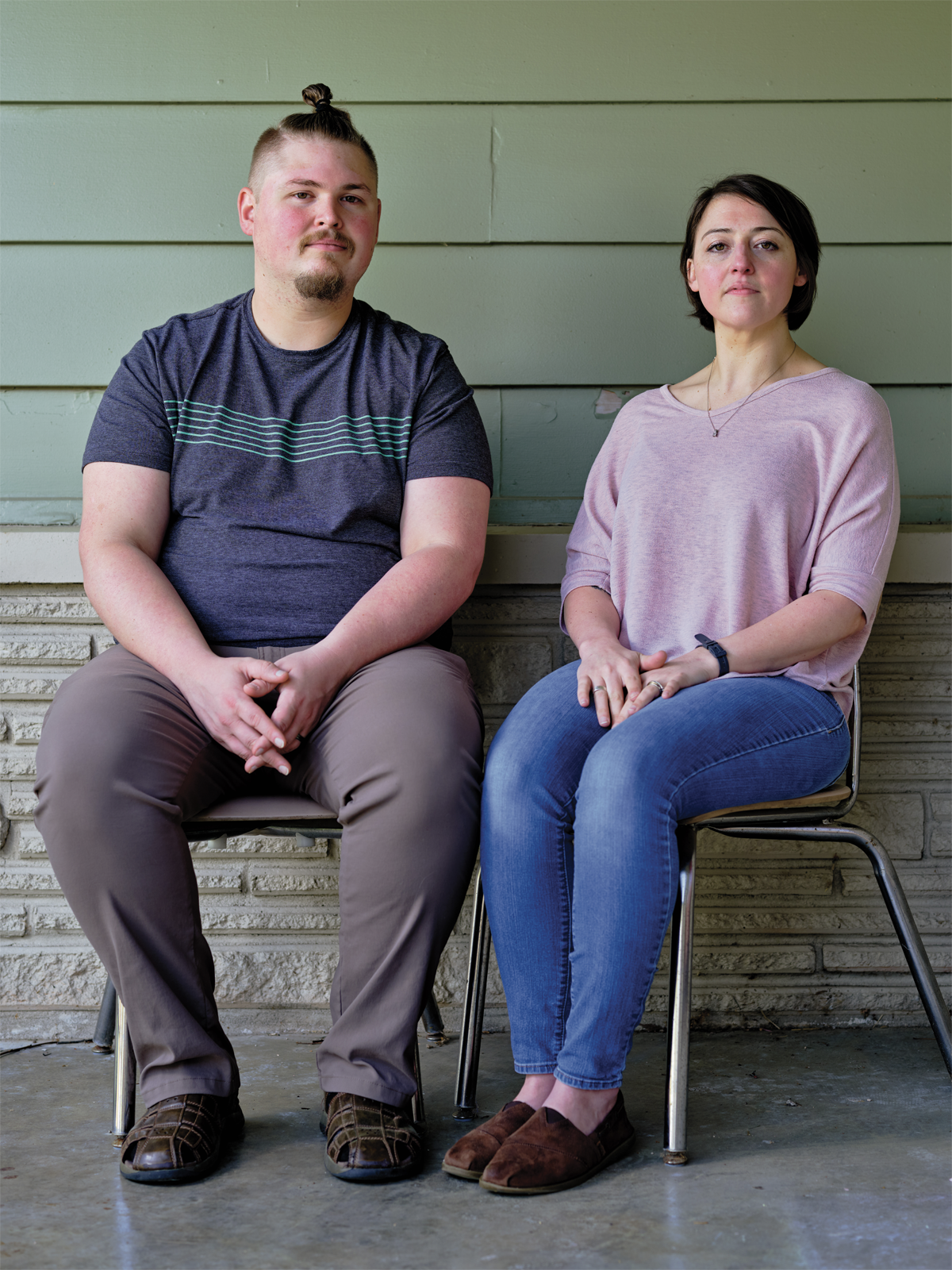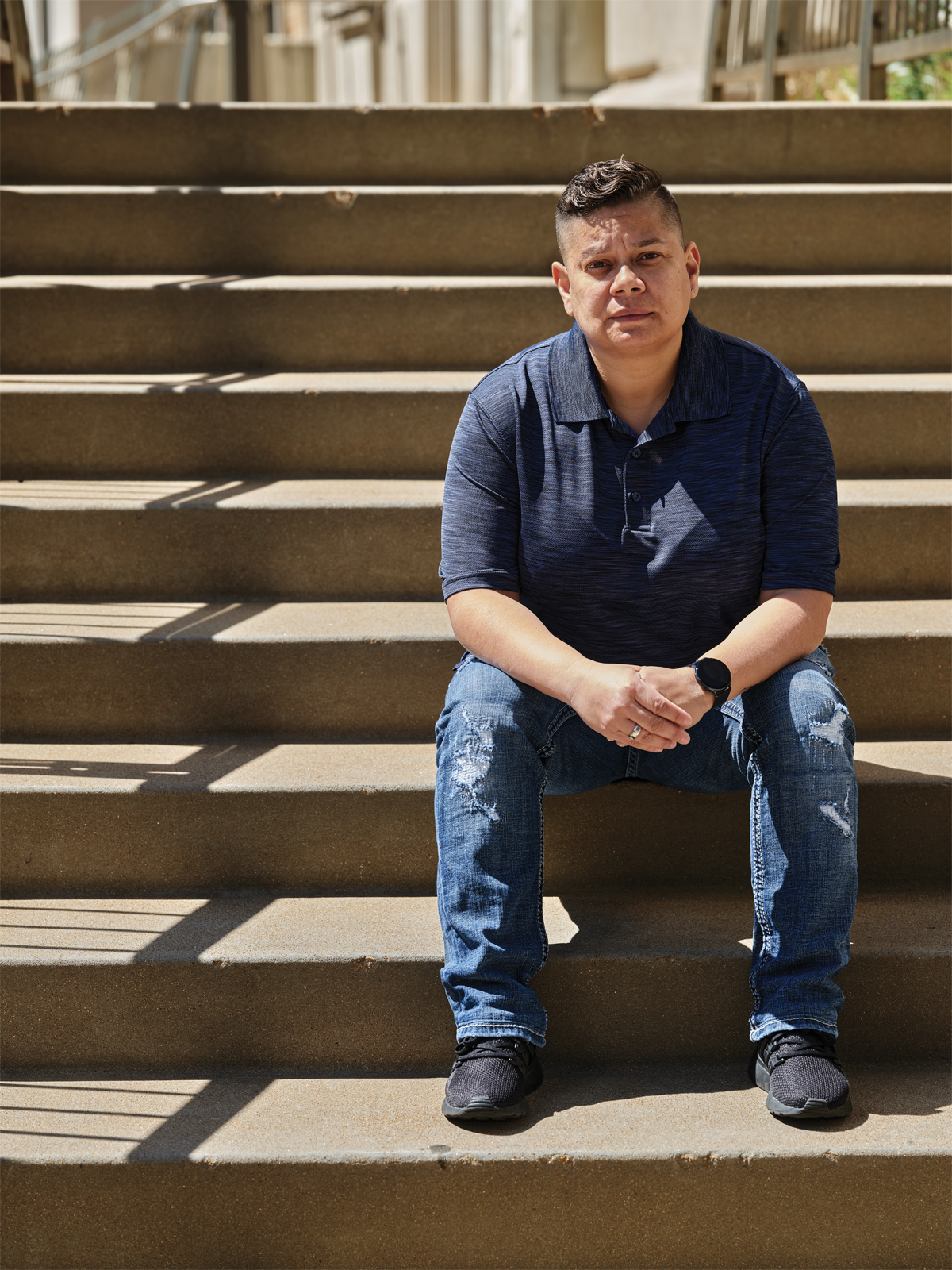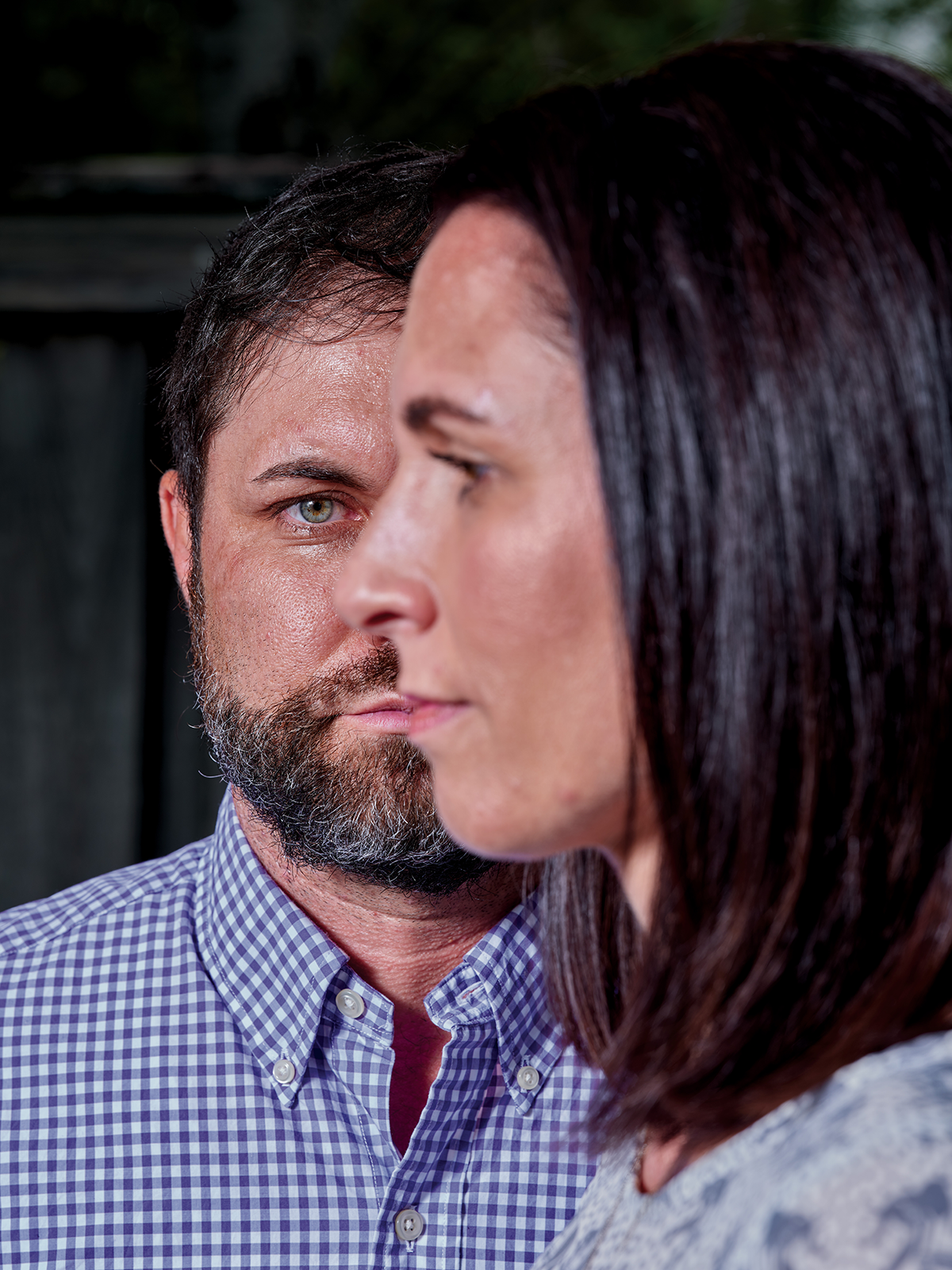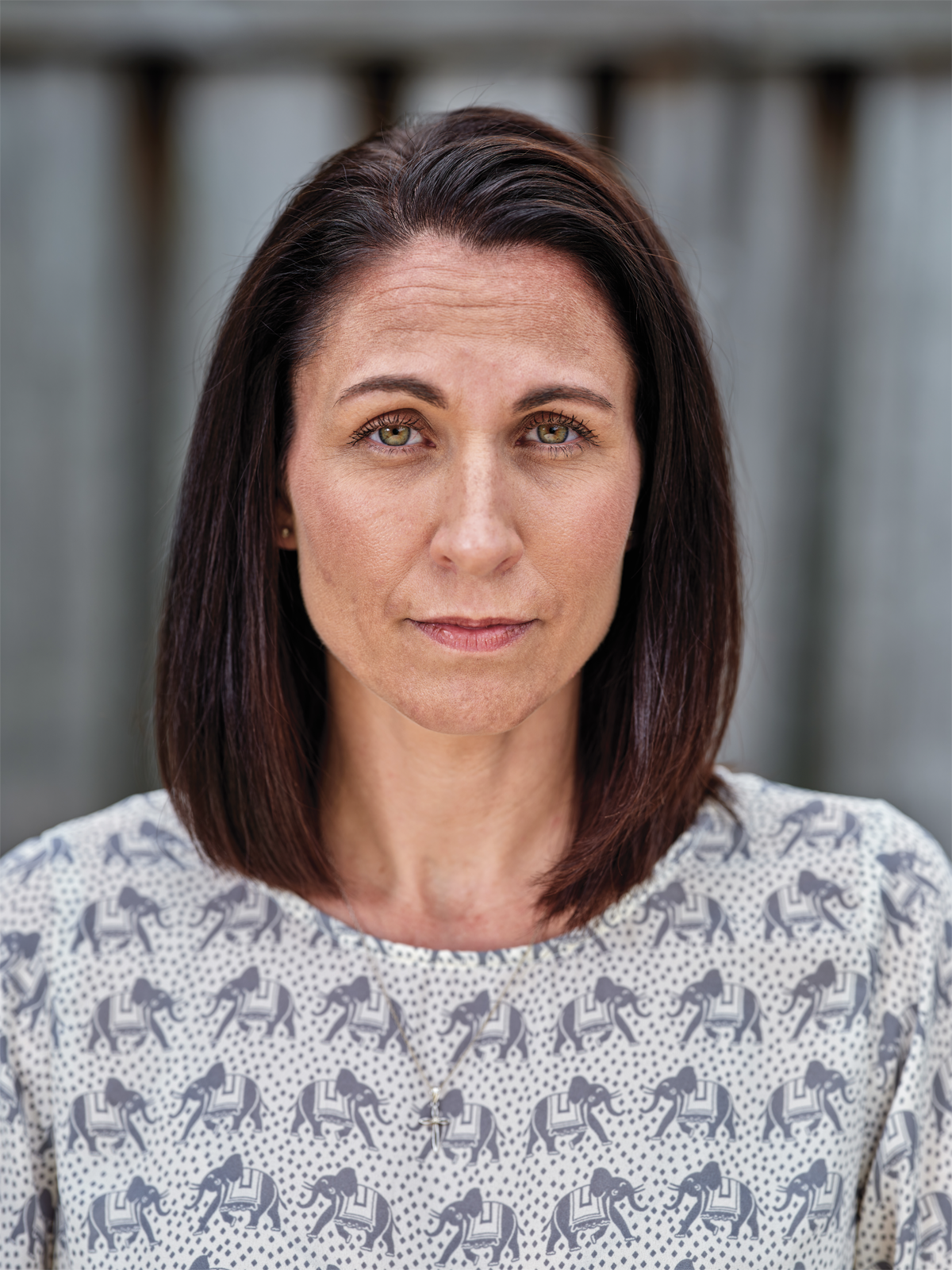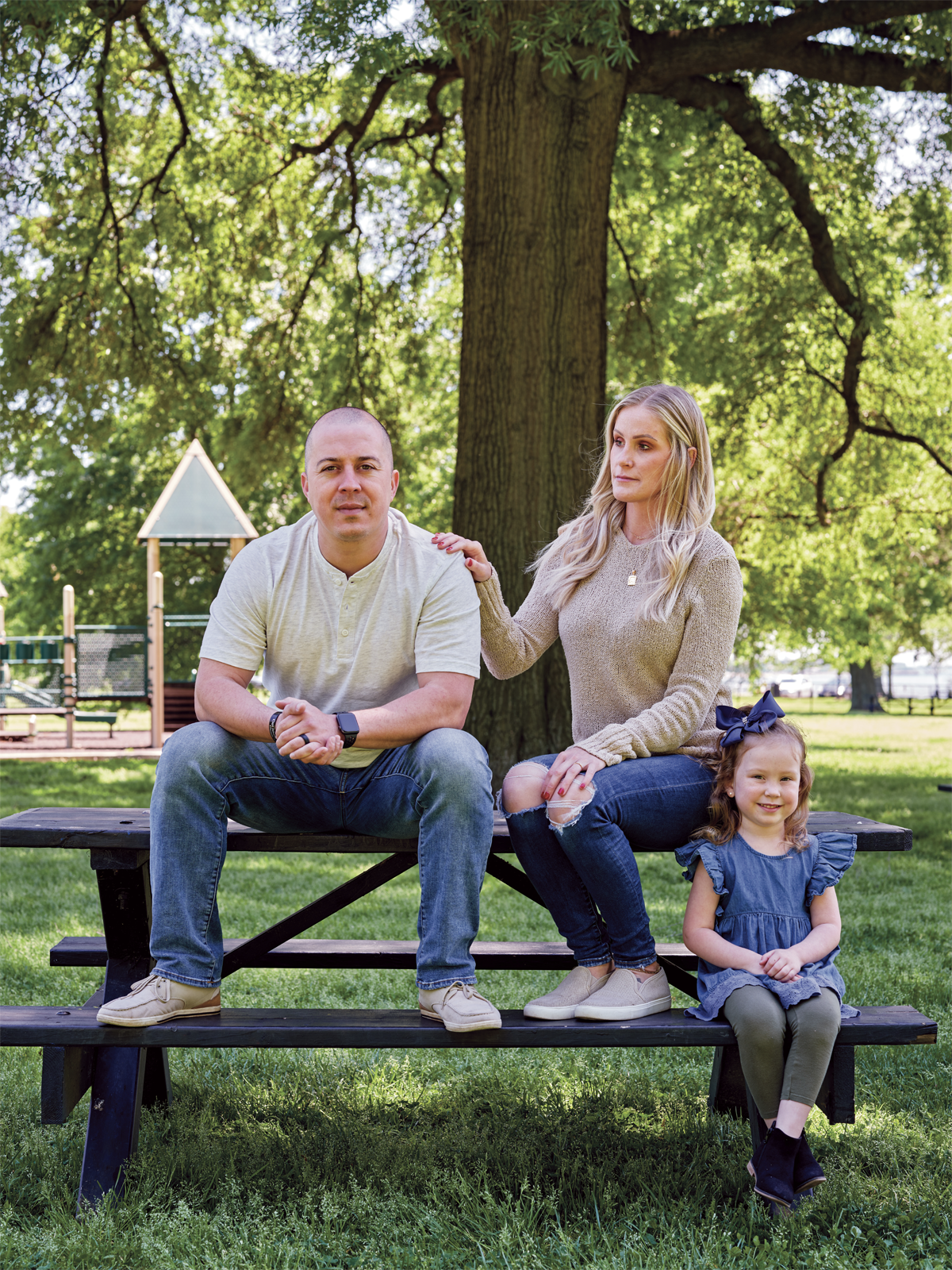Too often, a diagnosis of Alzheimer’s disease cuts the person off from the world, says Joe Wallace, a Massachusetts-based photographer. Motivated by his own experiences with family members with dementia, he wanted to create a more nuanced picture of people living with the disease. So at the suggestion of a doctor he knew, he reached out to Randall J. Bateman, director of the Dominantly Inherited Alzheimer Network (DIAN), which studies a form of of Alzheimer’s that affects people in their 30s to 50s.
“It’s a special and rare group,” Wallace says. “Because they have a very young diagnosis, they are already considering what a life with dementia will be like. They all know they have a terminal illness, yet they have the courage to participate [in the studies] for the benefit of others. Their courage added a powerful narrative to the overall project.”
The result of the collaboration is a new book from MIT Press, “The Day After Yesterday,” published 3 October 2023, which features portraits of and interviews with people with younger-onset Alzheimer’s disease.
“This book illustrates the essence and spirit of the millions of people with Alzheimer’s disease and their families,” Bateman says. Here we showcase some of those stories and why these DIAN participants chose to enroll in research trials, in their own words.
